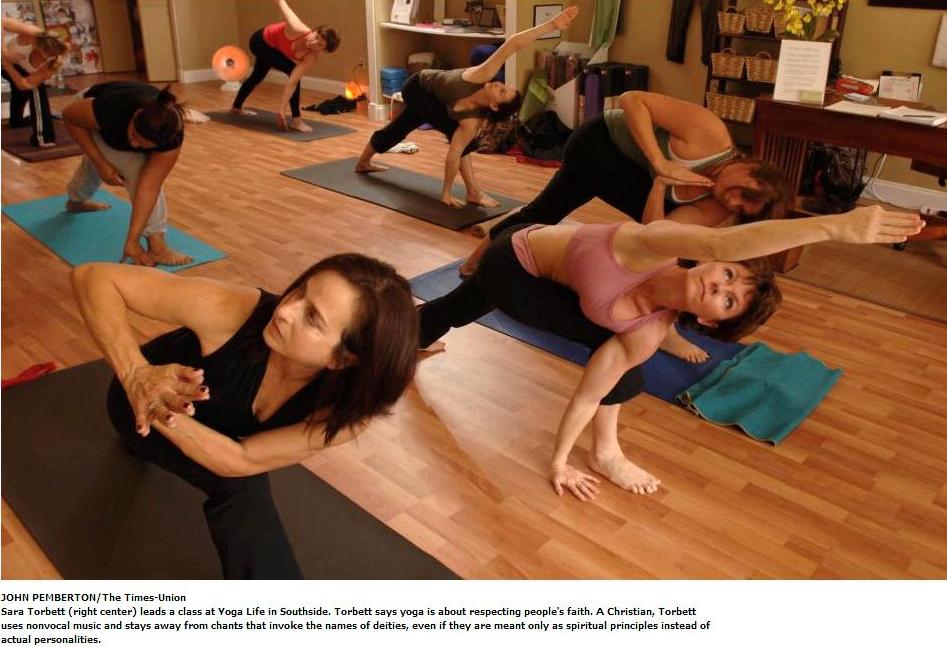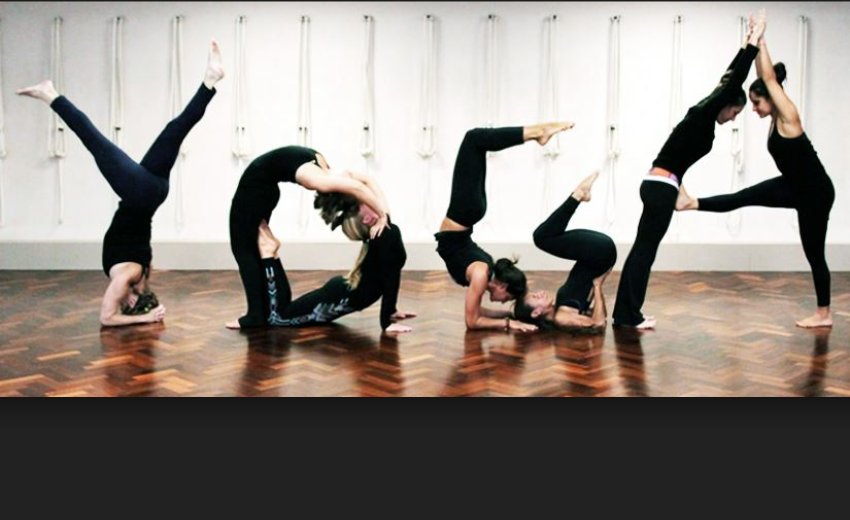Avondale's Kim Mason is a Christian who takes her faith seriously. She also practices yoga several times a week.
Conflict?
No way, said Mason, who scoffs at the notion that yoga is an overt or subliminal homage to ancient Indian gods or spirituality.
"You don't have to worship anything" during yoga, Mason said. "You can worship a Gucci purse if you want to - you have to look at your motive."
Mason's motive? Glorifying Christ.
"It is a form of praise and worship, in my opinion."
Given that nearly 16 million Americans practice yoga and spend $5.7 billion a year on classes and related products, Mason isn't alone in embracing the practice. But there are also many who view it as spiritually suspect at best and spiritually corrupting at worst.
The issue was thrust into the spotlight in November when an Islamic religious council in Malaysia banned Muslims there from practicing yoga because it includes postures, rituals and chants with ancient Indian origins.
That ruling mirrors the concern of some Jewish and Christian leaders who warn their followers against participating in any activity violating the biblical prohibition on idolatry and that tends to claim that all religions are equally valid paths to salvation.
And the issue is on the minds of studio owners and others as doctors, psychologists and other health professionals are increasingly recommending yoga as a way to combat everything from depression to stress.
Is yoga a religion?
Yoga teachers and studio owners draw a distinction between "spiritual" and "religious" when describing the practice: It's spiritual because it can do as much to strengthen existing faith as it can muscles, they said.
"It's a spiritual path," said Shri Hamilton-Hubbard, owner of Bliss Yoga in San Marco. "It works very well if you practice a religion along with it."
Yoga postures are more effective in both the physiological and spiritual realms if a practitioner is focused on what is most sacred to them during a session, whether it's Buddha, Jesus, Ganesh or simply "spirit," she said.
Spirit?
"Spirit for you can be connecting with your breath," said Kate Cordell, director of Ocean Yoga in Atlantic Beach. "Spirit could be connecting with a particular deity - maybe you're a Christian, and Jesus is who you honor."
Hamilton-Hubbard, Cordell and other teachers and studio owners said they never push a particular deity or agenda in their classes - just the principle of connecting with the sacred through practice.
Clergy advice: 'Be careful'
Rabbi Yoseph Kahanov said he's no yoga expert, but he knows for Judaism some forms are acceptable and some are not.
Kahanov, spiritual leader of Mandarin-based Chabad Lubavitch of Northeast Florida, said he's often asked if it's OK to participate in yoga. He reminds people that Judaism prohibits worshipping or honoring other deities in any form.
"I tell them it's OK when it's just trying to help people focus and meditate properly," Kahanov said. "But when it starts becoming religious in any way, I advise them not to be involved in that."
The Rev. Pradeep Thorat said he advises people to stay away from the practice, period.
Even yoga that's completely devoid of Sanskrit spiritual terms should be avoided because some of the postures originate from Hindu worship.
"If it comes from a spiritual background, it does carry some sort of spiritual effect," said Thorat, pastor of First Baptist Church of India in Jacksonville.
'Gateway to New Age'?
For Laurette Willis, there is no middle ground on yoga. She describes it as a gateway to the occult or New Age religion, and, at best, a diluted, one-size-fits-all spirituality.
The Oklahoma resident and author spent more than 20 years practicing and teaching yoga before reconnecting with her Christian faith and inventing PraiseMoves, a Bible-based exercise program that pairs individual verses with postures, some of which are similar to yoga poses.
In those two decades, Willis said yoga opened her to astrology, metaphysics, crystals, channeling, psychic readings, out-of-body experiences and other practices.
"You hear all this bandied about in the classes," Willis said. "Yoga has this skewed idea that there are many paths to God -and that's what New Age says."
As far as the Malaysian claim that the practice is inherently Indian in origin, Willis presents the dictionary as evidence.
"Webster's dictionary . . . calls it a mystic and ascetic Hindu discipline for achieving union with the supreme spirit through prescribed postures."
She advises people to stay away from yoga, no matter how much instructors and studios play down those spiritual components.

Yoga studios and instructors are aware of, and often sensitive about, the issue. Some declined to be interviewed for this story.
The fact is, the seemingly exotic sights (such as Buddha statues), sounds (chanting) and smells (incense) can alienate someone entering a yoga studio for the first time, said Siddie Friar, the manager of M Body Yoga on the Southside.
Friar said she was very turned off the first time she walked into a studio a couple of years ago and was asked to chant "ohm," a Sanskrit word whose sound is said to foster inner peace.
"We went through some postures, put our hands at heart center and the teacher called for us to 'ohm,' " Friar said. "I said, 'What is this?' It was very strange."
That's why some studios, including M Body, go easy on the Sanskrit and minimize or avoid the concepts and statuary denoting Eastern spiritual and physical concepts, Friar said.
"Saying 'open your heart chakra, feel your kundalini energy rising' - that's not going to make any sense to some people," she said.
'Ohm, amen or shalom'
That's why instructors teach differently depending on the setting, Cordell said.
If she's teaching at a YMCA, church or a community center, Cordell said she drops the Sanskrit words for poses and any spiritual terminology.
"I don't 'ohm' and I use the word 'breath' instead of 'spirit,' " she said. "I want to be careful not to make them feel uncomfortable or that I am confronting their beliefs."
Back in the studio, it's also about respecting people's faith, said Sara Torbett, owner of Yoga Life in Southside.
The music played at her studio tends more to be nonvocal and, because she's a Christian, Torbett said she stays away from chants that invoke the names of deities, even if they are meant only as spiritual principles instead of actual personalities.
There are also no statues, but instructors do lead students through saying "Ohm" and "namaste" (pronounced nah-mahs-day), Torbett said.
Ohm to her is a "neutral spiritual principle" and namaste can easily be translated into "the Holy Spirit dwelling in you and the Holy Spirit dwelling in me."
But using those words in a studio is not meant as a challenge to belief, she added. Sanskrit is used in studios much as Latin is used in medicine or Italian in classical music.
"Whether it's 'ohm,' 'amen' or 'shalom,' we're all saying the same thing - we're saying peace."
jeff.brumley@jacksonville.com

